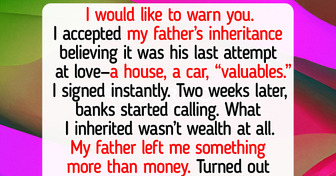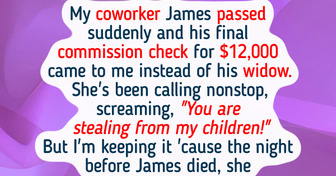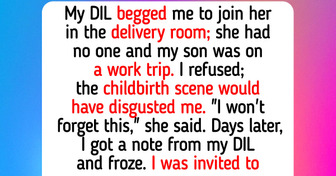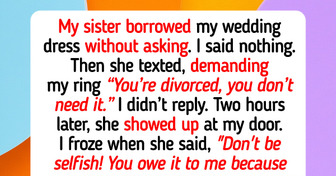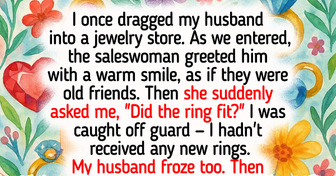I Caught My Boyfriend Stealing and Discovered a Chilling Truth He Tried to Bury

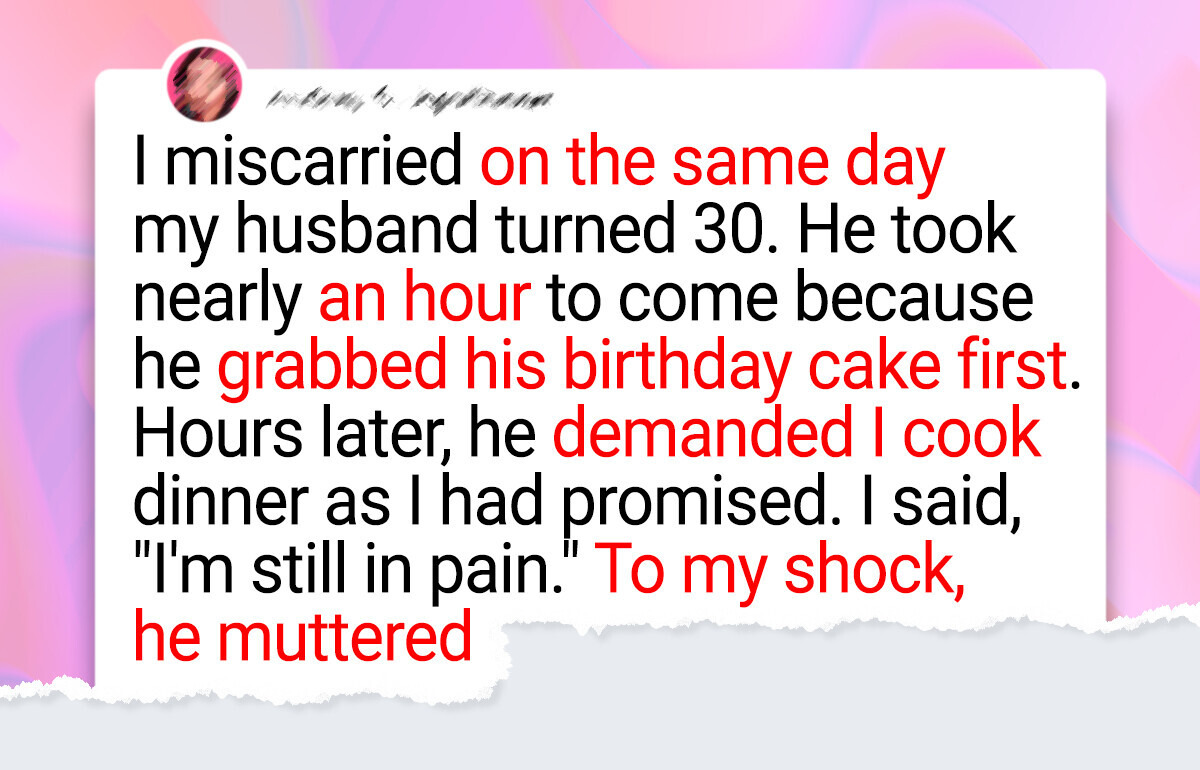
Hi Bright Side! Here’s my sad situation that I would not wish even on my worst enemy.
I miscarried on the same day my husband turned 30. It was supposed to be a happy day for us; my husband had been excited about his big day and had been planning a party for weeks. It wasn’t.
I was 10 weeks pregnant with our second child. We had just started telling family because we finally felt safe enough to believe it was real. That morning, while I was playing with our 4-year-old daughter, I started cramping. Not mild cramps. Deep, awful pain.

I called my husband. He was out picking up last-minute stuff for his birthday dinner. I told him I was bleeding, and I needed to go to the hospital.
He took nearly an hour to come home because he grabbed his birthday cake first. By the time he got back, I had already miscarried. Alone.
We went to the hospital and it was confirmed. No heartbeat. No baby.

Hours later, we got home. He demanded I cook dinner as I had promised. “You’re still making steak, right? You know it’s my favorite. You promised. It’s for the party.”
I was shaky and exhausted. I said, “I’m still in pain.” To my shock, he muttered, “You never keep your promises” under his breath.
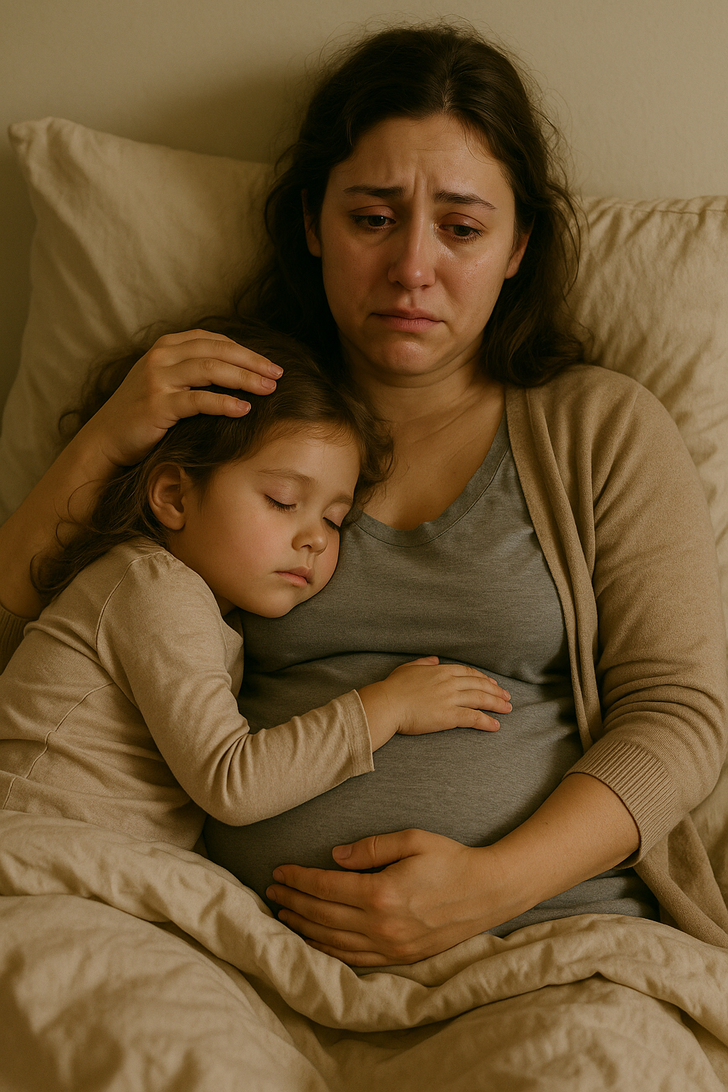
I didn’t argue. I didn’t cry. I just went upstairs. I couldn’t even face our bedroom. I slept curled up next to my daughter in her bed, listening to the sound of his birthday party happening downstairs without me.
She kept asking about her daddy, but I didn’t know what to say. I don’t know how I stayed through that night.

The next morning, while he was sleeping off the night before, I packed a bag for me and our daughter. Just a few clothes, her favorite stuffed animal, the essentials. I left a note on the counter. It said:
“Taking the one person who actually needed me yesterday. Enjoy your cake.”
I’m at my parents’ house now. It’s been almost a week. He’s been calling, texting, saying he “didn’t know how to handle our baby’s loss and lost his mind” and “needs another chance.”
I didn’t reply to any of them. My parents and in-laws are asking me to go back to him, forgive him, as people “handle grief in different ways,” but I’m not really sure if I want to.
Thank you for writing to us and sharing your deeply personal story. Here are a few suggestions on how you may deal with the situation:
Give Yourself Permission to Prioritize Your Healing: You’ve just gone through both a physical and emotional trauma, and it’s okay to take space for yourself without guilt. Don’t let anyone rush you back into a situation where you felt neglected and dismissed.
Right now, your focus should be on your healing — physically, emotionally, and mentally. You’re allowed to feel everything you’re feeling, and you’re allowed to take all the time you need.
Have a Serious, Honest Conversation — If and When You’re Ready: If you decide to respond to your husband, do it only when you feel emotionally safe and strong enough to handle it. When that time comes, consider setting the tone for a serious conversation — no distractions, no guests, just honesty.
Tell him what you experienced, how abandoned you felt, and how his actions hurt you.
If he truly didn’t know how to “handle it,” he needs to understand that ignoring your pain — and then turning the focus back on himself — is not something grief excuses.
Consider Counseling — Alone or Together: Whether you decide to go back or not, speaking to a therapist could be incredibly helpful. A licensed counselor can help you process the grief of your miscarriage and the emotional fallout with your husband. If you choose to entertain the idea of reconciliation, couples counseling should be non-negotiable. He must show a willingness to take responsibility, listen, and change.
And if he refuses to go? That’s a strong sign he may not be ready to do the work required to rebuild trust.
Don’t Let Anyone Else Decide What Forgiveness Should Look Like for You: It’s easy for people on the outside — even well-meaning family — to say “forgive him” or “he was grieving too.” But forgiveness doesn’t always mean returning. It doesn’t erase what happened. You’re allowed to define what healing looks like for you.
If his behavior broke something fundamental in your relationship, you’re not wrong for walking away. Sometimes, grief reveals who someone really is — and you’re not obligated to ignore that truth for the comfort of others.
Remember: Your Pain Is Real, and So Is Your Strength: You survived something incredibly painful. Not just a miscarriage, but the deep disappointment of not being emotionally supported by the one person who should have been there. And even in that pain, you protected your daughter, removed yourself from a harmful environment, and chose to be somewhere safe. That speaks to your strength, your clarity, and your self-worth.
Whatever comes next — whether it’s rebuilding or moving on — you have already done the hardest part: taking a stand for yourself.
In one of our previous letters, a woman wrote to us explaining why she chose her daughter’s well-being over her stepson’s, asking if she made the right decision. Read her full story here.

